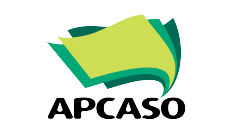This is the third in a series of case studies highlighting the results of the “Global Fund Realities on the Ground” a research study conducted by APCAS0’s APCRG Platform to measure civil society and communities’ experience when engaging in the key stages of country dialogue process under the Global Fund 2017-2019 funding cycle.
In Lao PDR, civil society organizations, and key and affected populations are assured of greater access to information and resources when they engage their Country Coordinating Mechanisms (CCM).The most visible proof of their CCM’s commitment to transparency is their website, https://ccmlaopdr.org/. It is a veritable one-stop hub for information on the work of the CCM in Lao PDR since its formation in 2015. The website contains minutes of meetings, membership and committee directories, work plans, reports, guidelines as well as extensive documentation of the specific grants from each previous and current funding cycles.
The Global Fund funding process provides many opportunities for civil society organisations to engage in the funding cycle, thereby sharpening the strategy for addressing HIV and AIDS, TB and Malaria in each country. The funding process requires the collective input of all stakeholders, and these inputs are expressed as National Strategic Plans, the funding request, the budget, as well as grant monitoring and reviews. The inputs of civil society are essential in each stage of the process, as various stakeholders bring their collective insights, expertise and experience. At the same time, information and knowledge sharing aids in the process, having mechanisms for information sharing would greatly facilitate involvement and engagement.
How has this abundance of information made a difference among Lao civil society’s and communities’ engagement? From a survey conducted in 2018 by APCASO[1], one community based organisation says they are encouraged to engage “to share ideas on each issue” while another shared that “Before the civil society (had been) less involved, but currently there are so many and the government has given the opportunity to make meaningful comments”. Civil society organizations’ rates of access to information observed in Lao PDR are overall high, and in particular greater access to the grant documents suggests that existing channels of diffusion are efficient and a practice that can be emulated in other countries.
The CCM in Lao PDR exemplifies how CCMs can make a proactive approach to information and knowledge sharing. This may include the diffusion of key documents relative to the funding request development process and sharing through platforms that are accessible to CCM members and their constituencies.. Further, CCM can make an effort to translate documents in local and simplified languages, promote the circulation of short and understandable executive summaries, and support launch meetings for stakeholders, civil society and communities.
[1] APCASO-is the organisation mandated by The Global Fund to host the Asia-Pacific Community, Rights, and Gender (APCRG) Communication and Coordination Platform. APCRG promotes and supports community, rights and gender (CRG) approaches to the development, implementation, and monitoring of all Global Fund programmes.
Source
APCASO APCRG, 2019. Global Fund: Realities on the Ground report https://apcaso.org/apcrg/wp-content/uploads/2020/01/Global-Fund-Realities-on-the-Ground_APCASO.pdf
(Photo courtesy of Lao PDR CCM)
